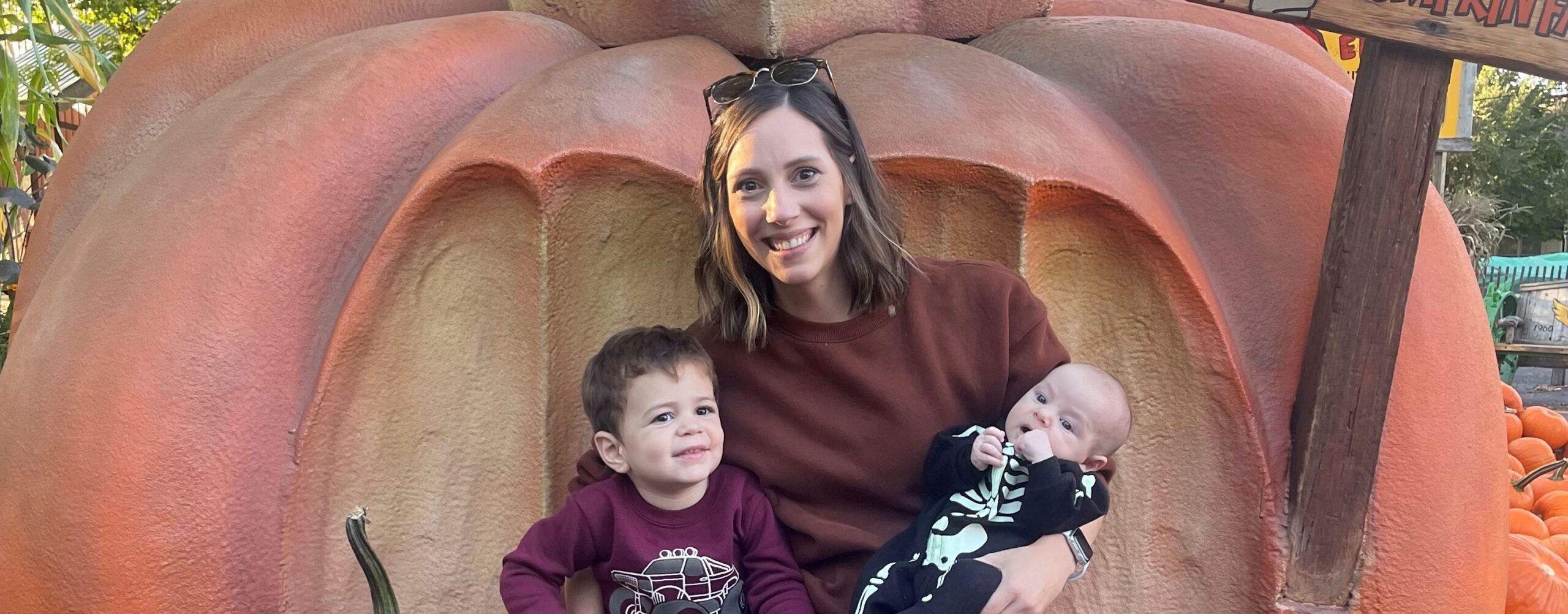Help our Teens – Transcription
Hi, everyone. Happy Tuesday! I’m going to talk about teenagers and specifically regarding the pandemic. I am very concerned about our teens right now during this time. Obviously everyone has had stressful situations. Adults are struggling, kids are struggling, but I do think teenagers sometimes are overlooked. We think that they’re very resilient and a lot of times they are, but sometimes they do need help and they need us as adults to notice that they need help because they might not ask for it themselves. And they might not really know what help looks like. So I want to kind of talk about what to look out for in terms of teenagers and how to help them. So with the pandemic, you have to understand these teenagers are losing all of their social interactions. If they’re remote learning they’re losing significant events that happened during their high school years.
Like proms, homecomings dances, sporting events. If they’re in sports, especially for those that are seniors – even freshmen where they’re kind of learning high school and they don’t get to do that in person. So there’s a lot that they’re losing and that’s really tough for them. And the social interaction is a huge deal for them because they’re used to seeing their friends. And even if they’re used to just seeing classmates, they’re used to seeing people right now, they’re not doing that. They’re stuck behind a computer screen all day. And of course us as adults, we are too sometimes, but we are able to handle it a little bit better. We have more resilience. We have more coping skills than they do. And a lot of times we have bosses that might be more flexible or work schedules that are more flexible with school.
They really don’t. So it’s really important to notice these things. If you’re seeing your teen withdraw socially even more so if they’re not FaceTiming their friends anymore, if they’re not texting as much, if they’re not chatting with them as much. If you just notice an overall withdraw, then that’s probably an issue. That’s a red flag right there. If they’re partaking in more increasingly risky behaviors like drugs or alcohol, sneaking out if they’re doing anything like chatting with random strangers online that they normally don’t do. Those are some risky behaviors to look out for. If they are, their mood seems to be just really off at home. If they’re more irritable, if they’re not talking to you as much as they used to or their siblings, if they’re just kind of like not wanting to anything to do with anyone that’s an issue as well.
Again, notice things that aren’t typical for that teenager. Every teenager is going to be different – maybe before the pandemic, they didn’t talk to you either. That might be the same behavior, but see if it’s increasingly worse. If they’re seemingly depressed, if you feel like they’re sad a lot, they’re down a lot. They’re talking about really negative things or feeling really hopeless, not talking about futuristic things or happy, positive things. If there’s any significant change in their eating behaviors, if they’ve lost a ton of weight or if they’ve gained a ton of weight or just things have changed in those regards, that’s also something to look out for. If you find that they’re anxious a lot, or they’re stressed a lot, they’re stressing about school, they’re stressing about family. They’re seeing that they have ruminating thoughts or intrusive thoughts about things that can be a sign of anxiety as well.
So those are some things to look out for. Another thing too, is they might be concerned about family members, maybe they’re at home more and they have more you guys have a lot of family members in your household or whatnot. And they’re around those people more, they might be more concerned about those people, especially if they have elderly family members that are living with, or they’re not living with. They might be fearful of COVID or their family members having COVID-19 and something happening because they’re at that age where they can understand that this is a serious thing. And they have no control over helping or trying to help their, their family members. So look out for some of those things. Some things to help them is talk with them, have open conversations, ask them how they’re doing. Maybe once a week, if not every day.
I know teenagers sometimes just don’t want to talk, but once a week, at least just check in with them, just say, Hey, how’s it going? You know, I can imagine that right now is really tough for you. And I just want to make sure you’re okay. I just want to make sure things are okay. And is there anything I can do to help? So just checking in with them, but don’t accuse them of anything. You know, if, if you’re noticing some of these behaviors, it’s okay to bring it up, but bring it up in the manner of Hey, I’ve noticed that you’re not really talking to your friends anymore. What’s going on? Are you okay? Do you need someone to talk to just kind of say it in those terms? I’m not saying like, what’s wrong with you, right? You don’t want to make them feel like something is wrong with them or that they’re in trouble for any reason.
So try to have that open dialogue with them, be empathetic in your responses. And it’s also okay to mention that you’re also struggling. If you are, saying things like, Hey, you know, I know this is a really tough time. I’m also having a hard time. Some days, some days are harder than others where I do feel more isolated. Are you feeling that as well? That can give them an opening to say, okay, my parent is also struggling a little bit. It’s okay. It’s normal to feel this way during this time. We’re not used to a time like this. So it’s normalizing those, those feelings and behaviors, and then asking them if they want to get help, do you want to talk to someone? Do you want to talk to a therapist? You know, we can, we can make that appointment together. But then you can talk to them on your own.
You know, it, would it be helpful to talk to somebody about how you’re feeling other than me and knowing having them know that it’s okay if they don’t want to talk to you about it, but making sure that they talk to someone about it, again, really pay attention to their behaviors and really try to see if anything drastic has changed or you’ve noticed anything and offer them help. Because again, they might not know what help means. They might not know what a therapist is. They don’t know what that looks like. So really try to help them understand what that is. And that you’re open to helping them get that help. Because a lot of times once you offer it, they might actually say, you know what? That might sound like a good idea. And then you can say, you want to help me pick someone out. Let’s see who you might feel comfortable with and then try from there again. I hope everything is going well. I know this is a tough time. But we really need to focus on our teenagers because they’re struggling. I’m very concerned about them and I hope everyone else is too. And acknowledges that they might need some help.
So if you, you have any other things that you want me to go over, I’d be happy to discuss them on my next talk it out Tuesday. Have a good rest of your week!



